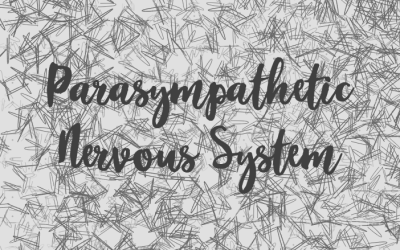OUR BLOG ON
Stress At Christmas
Stress At Christmas
Rachel Copeland for The Henry Centre
Festivities this year may feel quite different from previous seasonal celebrations and stress at Christmas is likely unavoidable. However, many of us will still want to mark this time of year with our loved ones. Whatever else may be going on in our lives, it’s important for our mental health to set aside time for ourselves. Indulging in the festivities the winter season has to offer is just one way to take care of our emotional needs. But how do we do that when we are met with unexpected challenges? Let’s look at how we can manage expectations as they contradict reality and find ways to care for our own mental health.
A Different Christmas
As we all know, this Christmas is going to be a bit different from others. As such, we’re all trying to do our best to make it as special as any other. Maybe even more special to make up for whatever we feel we may be lacking.
If we take the time to list all the expectations we put on ourselves at this time of year, it’s no wonder we are feeling the strain…Family difficulties, pressures to provide the perfect Christmas for our children, financial strains, topped off with unhelpful social comparisons… However, life is just too complex to ever guarantee the idealistic ‘perfect’ Christmas. Yet, somehow we still seem to expect it.
Let’s look at some of these stress factors a little more closely, beginning with family difficulties. Christmas traditionally focuses on families, but not all of us are part of an ideal family. Even if we are provided with support and involvement from our family, this in itself can prove to be a cause of stress. There may be clashes of opinions, which can result in tense atmospheres or even arguments at the dinner table. Trying to manage these family disputes during what we would prefer to be a peaceful time can be a diplomatic feat.
Even if there’s no obvious source of disagreement, a prolonged period in close quarters (rule of 6 inclusive) with family can still be stressful. The lack of privacy compounds the situation.
We may even be having arguments in our own head over these competing perspectives with our family. Our “responsible adult” thinking vs our “subservient child” leading to confusion and stress as we swing from keeping the peace and wanting to assert ourselves.
Let’s not forget those of us with splintered families and those who have no family to celebrate with at all. Loneliness can be so hard to bear at this time of year with such a bright spotlight on families. It’s unsurprising feelings of loss and grief are heightened.
Financial Strains
So, if family difficulties aren’t challenging enough, throw financial worries into the mix and we are really starting to feel the strain. We can’t seem to avoid the expectation to spend more money at this time of year…and what if we already have financial worries? The extra pressure may keep us awake at night, unable to switch our brains off from obsessing over budgeting plans and nightmare scenarios. When you want the best for your nearest and dearest, it really is a struggle to keep up with the expectations of buying the best gifts.
Societal Pressures
Unless you have your head under a pillow, it’s impossible to escape the societal pressures all around us. Messages telling us we need to do more, be more, give more…Be perfect! But what exactly is perfect? Christmas media, is just one example of the social expectations thrust upon us, to have the BEST XMAS EVER whilst looking amazing and feeling fabulous, surrounded by perfectly behaved children and happy family members. Society’s illustration of the ‘perfect’ Christmas is suddenly in our front rooms, with songs blasting through the speakers ‘wishing it could be Christmas every day’ and sometimes it can all feel, well…just a bit too much really.
It’s especially too much if you’re feeling the opposite of Holly Jolly this year. You may have noticed that any expression of that can sometimes lead to unsympathetic accusations of being the Christmas Grinch interspersed with phrases like “Bah Humbug”. This can lead to us feeling misunderstood and isolated when we need more support than ever.
Traumatic Anniversaries and Bereavement
It’s also possible that this time of year could bring up painful feelings for those of us who have lost loved ones or suffered some form of trauma around this season. Traumatic memories may replay due to the constant context triggers which come with this time of year. It may feel as though there is no escape.
Depression
All these added pressures can lead to us to struggle with feelings of anxiety and depression. For those who already suffer with mental illness, Christmas can be an extremely challenging time. Feeling down at this time of year can be quite a surreal experience when we are surrounded by such seemingly happy individuals. However, even without a diagnosis, feeling low at this time of year is actually more common than we are led to believe. It can be a difficult emotion to admit to…possibly due to the pressures we feel to be happy. However there is always a legitimate reason for feeling this way and we don’t need to suffer alone.
It’s possible this season magnifies what you feel is missing from your life (particularly in terms of relationships at a time when the focus is on family and relationships). The stark contrast can bring a real jolt to our hearts.
Winter Blues
A possible biological reason behind some depression may be due to Seasonal Affective Disorder (SAD). This is a common biological imbalance which can occur as the nights draw in and we have less exposure to daylight. It can be remedied through a Vitamin D supplement and regular exposure to a sun lamp. (However, it’s always best to check with your GP before taking any supplement.)
Any of these instances can lead to feelings of overwhelming disappointment that Christmas is not meeting our expectations or our perception of the expectations of others… If that’s not too confusing?!
Unhelpful Coping Mechanisms
We may find ourselves attempting to control our stress in unhelpful ways such as over-eating and drinking. As Christmas is a time when people are encouraged to ‘eat, drink and be merry’ we can end up consuming more alcohol than is healthy. Sometimes we have that extra glass of wine or slice of cake in an attempt to numb the stress, but we all know the negative side-effects… feeling bloated and run down and possibly even guilty if we’re trying to be healthy and we end up overdoing it. Over consumption has the opposite effect of pacifying our emotions. Alcohol actually turns up the volume on how we’re feeling and can lead to depression. Of course, a drink or two in moderation is perfectly acceptable as part of enjoying the festivities! However, using drugs, alcohol or other external things as a crutch to deal with difficult feelings usually only adds to the discomfort and self-hatred. The ‘solution’ often becomes the problem. (If you feel you may have an issue with alcohol or any other type of self-medication, taking the brave step of reaching out for support can be the key to rediscovering your well-being. See the end of this article for lists of professional organisations who may be able to help.)
Over-efforting
As another way of trying to cope with increased anxiety levels, we may end up over-efforting all over the place. Even if we are usually a happy introvert, the calendar flips to December and with it comes a sudden expectation from others (as well as ourselves) to socialise. While it is important to spend time nurturing family connections and friendships, it doesn’t mean we need to spread ourselves so thin with social engagements we risk tearing the fabric of our social selves.
We can’t underestimate the amount of effort involved in pulling off a first class Christmas…decorating, cooking and gift buying (much of which is expensive at a time when money is tight).
The two week school break may be termed the ‘Christmas holidays’, but the demands of maintaining the household don’t suddenly go on holiday. In fact there is additional cleaning and cooking involved. This is piled on top of our already busy lives due to everyone being at home (some with selective memories for how to clear up after themselves)!
Over-giving
Another way we may attempt to control stress, particularly any possible feelings of inadequacy, is through over-giving…of things and of ourselves. Many of us may struggle with over-giving in our lives at the best of times, but this time of year may send us into overcompensation overdrive.
Parental Pressure
I’m sure we all remember watching in horror as Arnold Schwarzenegger charges around the malls in a desperate attempt to source that illusive toy for his son in the classic Christmas film, Jingle All The Way…The mere memory of the scenario would bring a wrench to any parent’s gut and serves to prove the sheer pressure on parents to provide not only the perfect present, but the perfect Christmas for their children. Ok, our Christmas shopping experience may not be as chaotic and calamity-ridden as a Hollywood Blockbuster plot line, but it’s true that whoever ends up bearing the brunt of the great Christmas preparations is bound to be at greater risk of stress.
If we take a moment to stop… breathe… and think…when we look at these super-human/ Santa Clause level efforts, we’re potentially over-giving and forgetting to leave anything for ourselves…
As well as cooking up the Christmas pud, we may also be cooking up a recipe for burnout. However, it is possible to still give, but in a more balanced and mindful way.
Healthy Coping Strategies
So we’ve explored some of the less healthy methods we may be using to cope. Let’s now take a look at the more mindful ways of coping.
Becoming more self-aware through self-reflection is a good place to start, as sometimes we can unconsciously repeat unhealthy patterns of behaviour which further impact our stress levels.
The Gift of Presence
It’s important to tune in and listen to our bodies. Even if we’re not admitting to others how we’re feeling (or even ourselves) our body will certainly be telling us when something’s wrong. Headaches, stomach cramps, insomnia…Sometimes the most helpful thing to do is to accept these feelings instead of beating ourselves up for having them. Being nasty to ourselves is NOT going to make us feel better. Through paying attention to our own needs and practicing some self-love we can begin to start experiencing a more stress-free existence.
By consciously working on making this season easier for us and more fun we are able to be more present instead of focusing on what we have to do. Watching out for the words ‘should’ and ‘must’ when we talk about our to-do list will tell us if we are doing things from a place of inner need or outer pressure. Becoming more tuned into ourselves and present means we can begin to appreciate the simple blessings this time of year has to offer. The simple things we may miss if we’re running around like proverbial headless turkeys.
Journaling
If the pressure is becoming unbearable, how about making some time for a five minute brain dump? Journaling can be such a powerful release for pent up emotions and can bring unexpected clarity to a chaotic situation. Once our thoughts are out from our head and down on paper it can really lift that burden from our shoulders.
Boundaries
Setting healthy boundaries can be a transformative way to support ourselves. As we have discussed, it can be all too easy to over-commit at this time of year. Rather like a reliable steam engine chugging up the hill, we may feel we have to just press on regardless, doing what we’ve always done every year, but the truth is, we DON’T have to – it’s absolutely acceptable to be discerning about what invitations and commitments to accept. Even if others (and ourselves) are used to expecting more from us. If we keep doing what we’ve always done expecting a different result…well we all know the definition of that line of thinking!
How about delegating a few tasks to share the load. This combined effort can create more of a friendly team effort feel. It also empowers others with some responsibility who may be keen to help out anyway.
Sometimes having a ‘script’ can be helpful. Something to acknowledge the other person’s point of view, but clearly stating our own preference. For example: ‘That does sound like fun, but I’m quite tired/not feeling 100% and need to get an early night.’
Learning to recognise our limits allows us to give less and to take more care of our own needs. This is an empowering decision in line with self-care. If we are honest and open about our needs and have a proactive boundary plan to communicate these with our VIP’s, we begin to create healthy boundaries which harnesses healthy relationships and supports our mental well-being.
Honouring Anniversaries
It’s also important to be mindful of any possible traumatic anniversaries around this time of year and to remember to be kind to ourselves. Allowing ourselves that time and space to honour those emotions can be so healing. Therapy can be useful for this. This is an opportunity for people to gather (in person or remotely) to acknowledge the Christmas season without that forced sense of happiness (which can be so difficult to be around when feeling lost and alone). Through acknowledging these feelings of loss with others who have also experienced loss, we feel a sense of belonging. We may even move towards a place of gratitude for the memories and moments spent together with our loved ones who are no longer with us. It can be terrifying to reach out but the support can be transformative.
Family Fixes
What about difficult family situations? They don’t just magically disappear. We have to deal with them. Let’s have a think about the level of expectation. High expectations (even if the intention is coming from a good place) can pile on the pressure, particularly on relationships which are already strained.
Adopting a more realistic view about what we are likely to expect from our time together will help avoid disappointment and arguments. It may even help to heal pre-existing family rifts. Realistic expectations will help decrease our stress levels.
Volunteering
However, while the rest of the world is focused on managing family demands, conversely, it may be loneliness which strikes at this time of year. It can be tempting to hibernate away from the painful feelings of loneliness and wait until the season passes. However, it has been psychologically proven that participating in your local community (in a Covid safe way) can help reduce loneliness and give a sense of purpose. It’s also a brilliant way to raise self-esteem and boost our mood.
Donating our time to those less fortunate is such a rewarding experience. Helping and being kind to others can add true value to the lives of others who are struggling at this time of year. We then begin to tap into the true meaning of this season (whatever our faith may be). Plus, modelling the spreading of love and compassion as a parent is especially good for teaching kids empathy.
Budgeting
In the case of financial pressures, setting ourselves a budget and sticking to it as best we can before Christmas shopping is a good way to stay in control. The creatively inclined among us may benefit from indulging in making gifts. These admittedly do take time and effort but the act of creating is so therapeutic. Not only does it provide a cheaper alternative for gifting, the act in itself reduces stress levels. However, this is not for everyone. Reminding ourselves of that well-worn saying ‘the best things in life are free’ is so beneficial. As corny as the expression may be, it’s true that the most precious gift we can ever give our loved ones is our time and undivided attention. Spending time together playing a board game or watching a film can be just as meaningful and will help create happy memories. These gifts cost nothing but mean the world.
Let Go of Comparisons
It may not be possible to completely switch off from social pressures, but it is possible to choose what we consume. Taking a break from social media platforms can reduce our FOMO (fear of missing out) and the unhelpful social comparisons we may make in response to the picture perfect posts from friends and followers.
Press Pause
Allowing ourselves a ‘time out’ if we find our stress levels rising can be a circuit breaker for stress. If there is enough time, taking up a well-being class such as yoga (either online or in person) can provide mental and physical health benefits. This can be hard to achieve if we have responsibilities such as work, caring for a loved one or looking after children or even feeling obligated to entertain visitors. If it’s possible to make arrangements with a partner, friend or family member to take over for an hour or so to give us a break, that would provide some much needed support at a busy time. If this is not possible, then simply opening a window, listening to music, or sitting in the garden for some fresh air can blow away those cobwebs. Evidence increasingly indicates that outdoor activity provides additional benefits to health and well-being.
So, let’s remind ourselves that we are not alone in experiencing this annual stress and try not to be so hard on ourselves. Let’s pledge to do things differently this year. If we honour our feelings and intuition and make time for ourselves we can begin to move towards a more healthy mindset conducive with coping. Who knows we may even end up enjoying the Christmas festivities after all!
Helpful Organisations
The Samaritans:
116 123
https://www.samaritans.org/how-we-can-help/contact-samaritan/
The Henry Centre
01702 814044
The Old Station House, Westcliff-on-Sea, SS0 7SB
More From Our Blog
Inspired by… Klein
Welcome to our regular feature Inspired by which aims to give our readers an overview of the therapeutic backdrop to which many counsellors base their work today. As the decades roll by we are always privileged to be privy to the newest leaps in psychoanalysis and as...
Inspired by… Bowlby
Welcome to our regular feature Inspired by which aims to give our readers an overview of the therapeutic backdrop to which many counsellors base their work today. As the decades roll by we are always privileged to be privy to the newest leaps in psychoanalysis and as...
How to Heal a Toxic Relationship
In a healthy relationship, the bond between both of you is strong and you enjoy each other’s company. You make important decisions together and resolve problems through open discussion. You have ups and downs like all couples do. If you’re in a toxic relationship, it...
How to Live with Anxiety
Although anxiety is a part of life and everyone experiences it at some point, those who suffer from extreme stress, worry or fear struggle to live their life normally. Whether it’s with your career, education or social life, the symptoms get in the way of it all....
Loneliness
Many people can feel lonely from time to time, especially at this time of year. As the cold weather sets in, days get shorter and darker, and people are often less likely to go out and socialise with others. This only increases feelings of loneliness. However, for...
Children’s Wellbeing
What Is Wellbeing? When we think about a child with optimal wellbeing...what do we imagine? A healthy, happy child, well nurtured, provided for materially and educationally with access to all the opportunities life holds? Wellbeing relates to quality of life dependent...
Sex Addiction
Sex Addiction You're at the supermarket with your husband. While you're in the checkout queue, you pick up your mobile and begin scrolling through the dozens of contacts. Although you have already managed to have sex with 4 of them in the last 24 hours, you're...
Vitamins – Mind and Body?
It has long been said that the human body is so complex that it would be impossible to create it from scratch. Everything is designed to work in perfect harmony, every muscle and ligament, every nerve and synapse, everything down to the way that the body extracts...
Coping with exam stress
For most young people the first brush they have with overwhelming anxiety is around exam season and the lead up to it. Often teachers will begin to reinforce the importance of GCSEs or A-levels a full year before they are set to commence and that pressure can be...
The parasympathetic nervous system at a glance
Those who are an old hand at complementary therapies such as yoga or meditation will be well acquainted with mentions of the exotic sounding parasympathetic nervous system. In brief, this is the part of the nervous system- the nerve network that affects all our bodily...
Let's Talk
Westcliff Centre: The Old Station House, Station Road, Westcliff-on-Sea, Southend, Essex, SS0 7SB
01702 814044
Chelmsford Centre: Rochester House, 145 New London Road, Chelmsford, CM2 0QT











